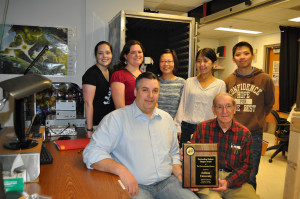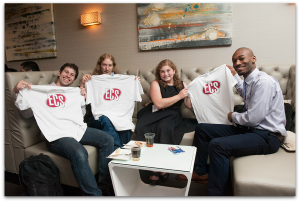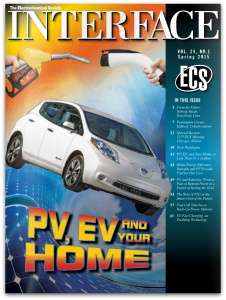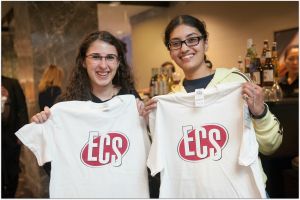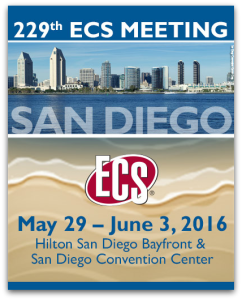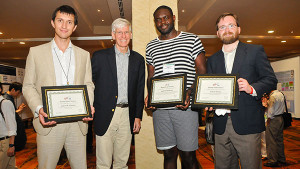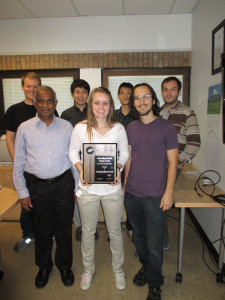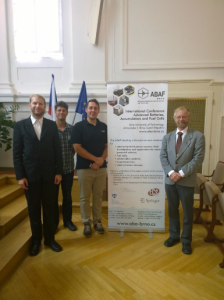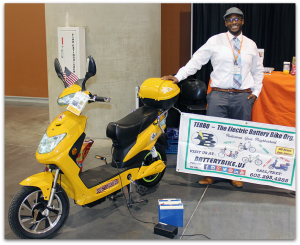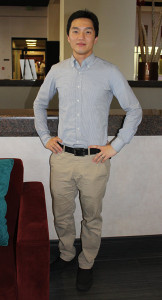ECS would like to introduce its 2015 ECS Outstanding Student Chapter Award recipient, Indiana University!
The Outstanding Student Chapter Award is a prestigious award given annually at the fall ECS bi-annual meeting. An Outstanding Student Chapter recipient actively participates in the ECS community, hosts their own community outreach activities and lectures, and has devoted, hardworking members.
With over twenty members, Indiana University Student Chapter is led by Professor Dennis Peters and Professor Lane Baker. This group is made up of members from different research backgrounds, which allows discussion to vary and provide insight into the numerous fields of electrochemistry, including bioanalytical and environmental. The chapter has hosted guest speakers, including Allen J. Bard and Nate Lewis, on their campus to not only present seminars, but also give career advice.
The mission of the Indiana Student Chapter is to spread knowledge of electrochemical science to the younger members of their community. This year will mark the fourth year in a row that this chapter volunteered at Science Fest, where chapter members host an entire laboratory with hands-on electrochemical experiments. This coming year they will also add a research talk, open to all.
The Indiana Student Chapter strives to build a better forum for students with different backgrounds to share their ideas, host and conduct outreach activities, while furthering their professional development.
Congratulations, Indiana University!


